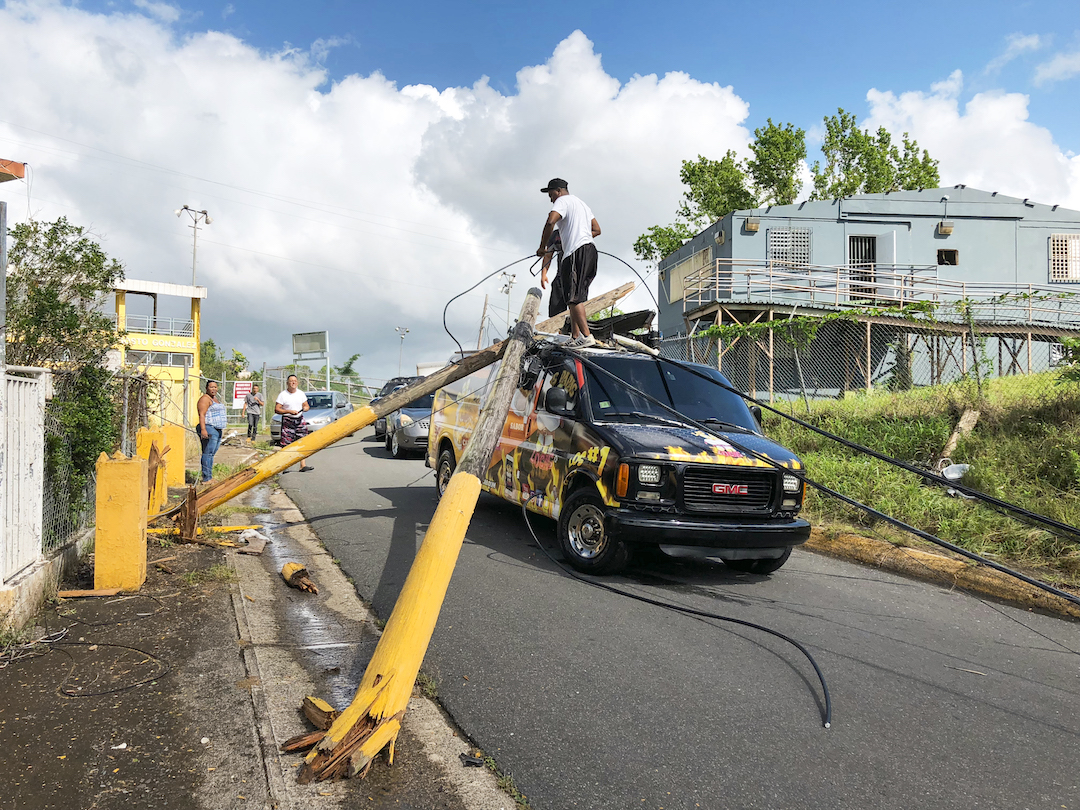
As the number of extreme weather events associated to climate change continues to grow world-wide, it is becoming increasingly important that institutions of higher education reflect on their role both before and after catastrophic events.
The “RISE CONFERENCE 2019: Transforming University Engagement In Pre- and Post-Disaster Environments: Lessons from Puerto Rico," to be held at the State University of New York-Albany Nov. 18-20, will bring together researchers and educators from across the nation, including several from Penn State, to explore how higher education can strengthen preparedness, response, and recovery in the face of growing threats posed by climate change and extreme weather.
Organized by two professors from the University of Puerto Rico–Mayaguez — Marla Perez-Lugo, professor of sociology, and her husband Cecilio Ortiz-Garcia, professor of political sciences — the idea of a conference originated from the couple’s personal experiences as local academics and scientists during the aftermath of Hurricane Maria in 2017.
“In the months after the impact, we were dealing with the total collapse of the archipelago's electrical system and the corruption of the federal and state government agencies in the response, recovery and reconstruction processes,” said Perez-Lugo. “Additionally, more than two dozen universities from the mainland were doing rapid-response research and humanitarian aid activities in our most vulnerable communities. Many of these endeavors were very well intentioned and were providing much needed assistance in some areas, but they lacked coordination both among themselves and with local communities, NGO’s, and local experts and authorities.”
Almost immediately, Perez-Lugo and Ortiz-Garcia identified serious issues related to that lack of coordination and the purposeful production of ignorance about the cultural, environmental, historical, and political aspects of these interventions. They also noticed the invisibility of local academics and expertise in the eyes of arriving institutions and organizations.
Perez-Lugo and Ortiz-Garcia, who are also co-directors of the University of Puerto Rico’s National Institute for Energy and Island Sustainability, invited all the researchers and university representatives they encountered in the field to return to Puerto Rico in the summer of 2018 to reflect upon these issues. According to Perez-Lugo, 95 researchers came for the three-day workshop.
“The outcomes of that workshop became the foundation for not only the RISE Conference, but also the RISE Network, an inter-university collaborative platform designed to reenvision the role of universities in disasters," said Perez-Lugo.
The RISE Conference will deliver a three-day series of workshops to explore how institutions of higher education can develop new strategies and approaches in dealing with in pre- and post-disaster environments while using Puerto Rico as a case study. Sessions are designed to deliver a set of actionable outcomes to build a national platform.
“The RISE Network will construct a mesh of collaborating universities, serving as radars of regional and local vulnerabilities to enhance community resilience and leaving no blind spots," added Ortiz-Garcia.
To date, over 400 participants representing 114 universities from across the nation and 60 agencies and organizations will be converging at University of Albany. Penn State attendees include Alexis Santos, assistant professor of human development and family studies and Social Science Research Institute cofunded faculty member; Erica Smithwick, E. Willlard and Ruby S. Miller Professor of Geography and director of the Ecology Institute; Jenni Evans, professor meteorology and atmospheric science and director of the Institute for Computational and Data Sciences; Ben Goldman, archivist for curatorial services and strategy in the Eberly Family Special Collections Library; and Maria Bermudez, graduate student of philosophy.